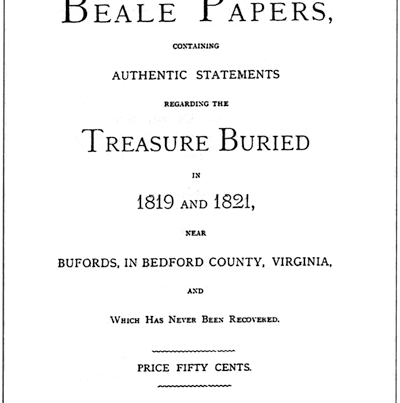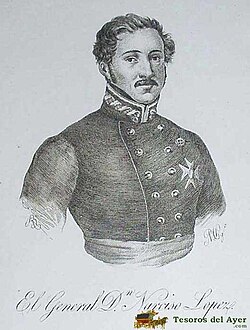Dr. James McPherson is one of the leading historians of the post-60’s era. He received his Ph.D. from Johns Hopkins University in 1963, with the Highest Distinction. He is Professor Emeritus of United States History at Princeton University where he taught for 25 years, and a former president of the prestigious American Historical Association. His book “Battle Cry of Freedom” earned him a Pulitzer Prize.
Despite all these accomplishments, Dr. McPherson has one major flaw. He allows his social justice activist ideology to interfere with his historical interpretation. It is a common malady of modern historians who must walk in lockstep with a Leftist ideology that controls the post-60’s academic environment if they want their career to survive. Their method is to suppress anything in history that does not support the myth that the Civil War was a poster event for revolution against oppression; it is a historiographical method employing Marxist style analysis.
An example of this suppression of evidence in McPherson’s work is his discussion of Lincoln’s 1862 offer of compensated emancipation to the slave States. He mentions the July 12 meeting Lincoln held with the border slave State representatives where Lincoln attempted to convince them to accept his offer. It serves his “crusade against oppression” narrative. But McPherson conveniently omits in the discussion where Lincoln says it is a strategy to win the war and not a crusade to free slaves. And McPherson omits where those representatives tell Lincoln that the seceded States did NOT secede over slavery, and as a “fact, now become history,” were offering to end slavery if European powers would aid in the war to gain Southern independence. This is an obvious intentional sin of omission on the part of McPherson to spin a false narrative.
In another example of the suppression of evidence, McPherson spins the narrative, common to most all modern historians, that the Civil War was caused by Southern objections to the 1860 Republican Party’s resolve to prohibit slavery’s extension into any of the western territories. This is presented as a “bondage happy” South wanting to extend slavery, and a righteous North drawing a moral line in the sand against it. The fact that leading Southern statesmen such as John C. Calhoun and Jefferson Davis denied any desire to expand slavery for its perpetuation is merely ignored. Even prominent Northern Senator Daniel Webster admitted that slavery could not go west because of climate – again ignored. The fact that Northern opposition to slavery in the territories was, as leading Northern statesmen such as William Seward stated, not out of a moral concern for slaves, but for the benefit of white people by keeping black flesh out of the west, is suppressed to spin it all as a moral crusade against an evil South.
McPherson has to spin the narrative in this fashion to somehow make palatable a war that was in reality a crime against humanity. For if ending slavery was not the ultimate justification for the war, then all that is left is a war to “preserve the Union,” which certainly has no redeeming moral value. How could it, in a Union whose founding organic law was based on a Declaration of Independence that asserted the fundamental human right to a “government by consent of the governed?” Preserving the Union did not necessitate forcing the Southern States to remain in it. The Union could have continued minus those States. But the Northern section would have been economically famished without those Southern States. Preserving the Union” was nothing more than a euphemism for forcing the Southern people to remain under a government to which they no longer consented, and for what? So that the North could economically exploit the revenue generated by “King Cotton.”
There are, however, some things even McPherson cannot spin, and he has to admit that it was the North, and not the South, who led a revolution against the Founders:
“The South’s concept of republicanism had not changed in three-quarters of a century; the North’s had. With complete sincerity the South fought to preserve its version of the republic of the Founding Fathers–a government of limited powers.” Professor James M. McPherson, Antebellum Southern Exceptionalism.
“Union victory in the war destroyed the southern vision of America and ensured that the northern vision would become the American vision. Until 1861, however, it was the north that was out of the mainstream, not the south.” Dr. James McPherson, Battle Cry of Freedom.
McPherson admits Jefferson Davis’ commitment to the Founders principle of “States sovereignty” as being the South’s casus belli:
“Forced to take up arms to vindicate the political rights, the freedom, equality, and state sovereignty which were the heritage purchased by the blood of our revolutionary sires.” quoted in Battle cry of freedom, Oxford U Press.
McPherson, while admitting the North was the section that abandoned the Founders, is a nationalist who approves of the Lincoln led revolution against the Founders. Of the war he applauds that Lincoln forced,
“the several states bound loosely in a federal union under a weak central government into a new nation forged by the fires of war…
…. the old decentralized federal republic became a new national polity that taxed the people directly, created an internal revenue bureau to collect these taxes, expanded the jurisdiction of federal courts, established a national currency and a national banking structure. The United States went to war in 1861 to preserve the Union; it emerged from war in 1865 having created a nation. Before 1861 the two words “United States” were generally used as a plural noun: “The United States are a republic.” After 1865 the United States became a singular noun. The loose union of states became a nation.” James McPherson Battle cry of Freedom Oxford U Press.
What those like McPherson with nationalist sentiments cannot grasp is the loss of freedom and the creation of crony capitalist corruption that the Lincoln led North imposed on all Americans by force of bayonets. The Founders had carefully constructed a confederation in which power was intentionally decentralized and dispersed among the States as a means of avoiding centralized tyranny. Lincoln’s war created the very monster the Founders so rightly opposed.
Politicians of the federal government along with centralized planners in agencies such as “the Fed” (our version of the old Soviet Politburo), now gainfully manipulate centralized power at the expense of the freedoms and bank accounts of the people whose States no longer defend their polities. The results of the Lincoln revolution, which McPherson spins as a revolution of social justice, was, in reality, a centralized sovereignty enabling corruption at the highest level. And that is what Lincoln and his Republican crony capitalist allies really wanted. It was all about leveraging the North’s population advantage for control of a now sovereign general government for the purpose of economic exploitation of the Union. Ohio Congressman Clement Vallandigham spoke in opposition to the reason for Lincolns war in 1863, and it cost him dearly because of Lincoln’s retribution:
“Overthrow the present form of Federal-republican government, and to establish a strong centralized government in its stead…national banks, bankrupt laws, a vast and permanent public debt, high tariffs, heavy direct taxation, enormous expenditure, gigantic and stupendous peculation . . . No more state lines, no more state governments, but a consolidated monarchy or vast centralized military despotism.”
Vallandigham had no idea the extremes to which the corruption could reach. We now are $30 trillion in debt, and the national banking structure so opposed by Thomas Jefferson as unconstitutional and potentially corrupt, has seen banking failures as politicians in bed with centralized planners enrich themselves at the expense of the taxpayers who have to fund bailouts. Today five US Banks have risk exposure that is twice the amount of the GDP of the entire world! And the risk to us all is compounded by the fact that politicians repealed the Glass-Steagall Act of 1933, a law which prevented commercial banks from using people’s deposits for speculative purposes. Now banks are beginning to fail cyclically. Dr. Paul Craig Roberts explains:
“It all happened because public policy has ceased to be in the public interest, instead serving private agendas…. The commercial banks wanted to participate in the speculative ventures like investment banks and enjoy the same high earnings. Instead of using their own money, they wanted access to the money of their depositors.”
Could any of this centralized corruption been possible had sovereignty remained diversified among the many States as the guardians of the rights and welfare of the people of those States? It is highly doubtful. We have the Lincoln revolution to thank for all this corruption. And McPherson’s, along with his fellow cabal of Leftist historians, attempt to spin the narrative to cover it up does us all no service. But then social justice ideologues care more about ideology than they do justice. And fabricating history is simply a means to an ideological end. A few years ago McPherson and some of his fellow “Pious Cause” historians asked Barrack Obama to not lay the traditional wreath at the Arlington Confederate Monument for all the usual fabricated reasons that seek to vilify the Confederate cause. To his credit, Obama had a wreath placed there anyway.







Nice work Rod.
McPherson was the one who wrote about Col. John Mosby that he never affected any major battle. I was able to point out that he was absolutely wrong in my book on Mosby:
Response to the claim that John Mosby was “ineffectual” in the Civil War: First, before this matter can be intelligently considered, it is necessary to acknowledge that no leader in a losing cause can be considered “effectual” however many victories he may have won. Once a cause is lost, nothing achieved by anyone who fought for that cause was “effectual” within the meaning of that word. Therefore, to say that John Mosby was “over-rated” because he didn’t “help win the war” is senseless! In looking at the war itself, however, Mosby certainly contributed mightily to the Southern cause in Virginia. Gen. Robert E. Lee said he did; and that, frankly, should end the controversy.
But even before Mosby’s efforts against Sheridan in 1864 saved Richmond for six months, there was an event that testified to his effectiveness in the Battle of Brandy Station, the largest cavalry battle ever fought in North America. As Mosby and his very few men—well under fifty—were ranging and raiding around Washington, the authorities in the capital would not permit the cavalry troops of General Stahel to leave the area. Testimony on this matter is given below:
The Count of Paris, a staff officer in the Union army testified:
“In Washington … General Heintzelman was in command, who … had under his control … Stahel’s division of cavalry, numbering 6000 horses, whose only task was to pursue Mosby and the few hundred partisans led by this daring chief.”
Regarding this matter, Mosby noted in his War Reminiscences:
“If Pleasanton had had those 6000 sabres with him … in his great cavalry combat with Stuart at Brandy Station, the result might have been different. Hooker had asked for them, but had been refused, on the ground that they could not be spared from the defense of Washington.”
Mosby also included General Hooker’s testimony before the committee on the conduct of the war:
“I may here state that while at Fairfax Court House my cavalry was reinforced by that of Major-Gen. Stahel. The latter numbered 6100 sabres, and had been engaged in picketing a line from Occoquan River to Goose Creek… The force opposed to them was Mosby’s guerrillas, numbering about 200 [Mosby puts in the phrase: “not over thirty men”];… From the time I took command of the Army of the Potomac there was no evidence that any force of the enemy, other than that above named, was within 100 miles of Washington City; and yet, the planks on the chain bridge were taken up at night during the greater part of the winter and spring.”
Neither is this matter raised only in the testimony of the time. In his book Ghost, Thunderbolt, and Wizard: Mosby, Morgan, and Forrest in the Civil War, author Robert W. Black also makes reference of the possible consequences to Stuart’s cavalry had Mosby not kept over six thousand Federal sabers out of the battle. Black wrote:
“… at the time the 6,000 man Union cavalry division under Major General Stahel was tied down trying to guard against the Rangers and to find and destroy Mosby. On Tuesday, June 9, 1863, the great cavalry battle between Stuart and Pleasanton was fought at Brandy Station. Then thousands of cavalrymen went into action on each side and both sides had reason to claim victory. One additional Union cavalry division may well have made it a decisive victory for the North.”
For those familiar with such things, a decisive Union victory at Brandy Station might have seen the decimation of Lee’s cavalry and the wounding, death, or capture of General Stuart—serious, if not fatal blows to the Army of Northern Virginia. So for those who state that John Mosby never “influenced” a major battle—as did historian James McPherson—that claim has been disproved; or in the alternative, Brandy Station, the largest cavalry engagement fought on American soil, cannot be considered a “major battle”.
A very interesting read – thank you, Mr. O’Barr. It left me with one question, though: There are two claims and I’ve read them before, in other writings, but never ‘side by side’:
First, the motivation for the Northern powers-that-be to outlaw slavery in as many states yet to be admitted to the union as possible was solely based on the wish to keep black people out of these states and, thus, not at all on moral/humanitarian grounds. Second, an extension of slavery into the new territories would essentially not have happened anyway because holding slaves there would not have been very ‘useful’ due to various practical circumstances.
Isn’t that a seeming contradiction? Wouldn’t the Northern powers-that-be have known that hardly any slaves would have been brought into those new states anyway, even if allowed? And, if they knew this, why would they have fought so hard over not allowing slavery in those new states? Just to ‘flex their muscles’? To set a precedence of taking power away from individual states (which, in turn, would incite the Southern states)? To antagonize and bring about one more confrontation with the South which they ultimately wanted to subdue?
I think a Northern politician goes a long way toward answering your question about what motivated the North against slavery in the territories. Here is a link to a piece I wrote on this politician:
https://www.abbevilleinstitute.org/daniel-webster-on-the-expansion-of-slavery/#:~:text=Statesmen%20such%20as-,Davis,-and%20Calhoun%20made
Also, I do not think Northern opposition to slavery’s expansion into the territories was “solely based on the wish to keep black people out of these states.” While Northern racism was a major motive, there were other motives also. Northern politicians wanted to limit Southerners settling in the West. Doing so would greatly limit the prospects that the territories would be formed into Northern allied States. And so Northern politicians played upon Northern racism to frighten a racist Northern polity into believing the South sought to spread slavery all over the Union. It was a political ploy to coalesce the North’s majority population into a solidified voting block to be leveraged against the South. Hearing this threat, most in the North would never stop to consider that the arid environment of the territories would prevent plantation slavery from ever moving West.
Northern politicians knew the vast number of Southern slave owners owned less than five slaves. These were house slaves and subsistance farming slaves who might very well be brought into the territories where they could be used without detrimental affect from the arid environment. These slaveholders could influence extended family to seek a better life in the West also. Northerners knew many of these house/farm slaves would also be taken there for the purpose of their emancipation. Those who were not emancipated, would eventually be set free when the States formed there would eventually vote slavery to end beausee climate prohibited it from being profitable. This was argued by Jeff Davis in an 1850 sspeech where he argued for the right to take slaves into the territories as the best prospect for their emancipation. The threat then was Southern politically allied States being formed in the territories if these numbers of Southern people were not discouraged from migrating West. So there was a racist and a political component to Northern antislavery in the territories.
If the Northern polity was against slavery in the territories on “moral grounds,” would they not have held to the same idea that slavery wasn”t going West anyway, and therefore there is no reason to oppose slavery in the territories on moral grounds? It is a complex assortment of reasons that motivated the North against slavery in the territories. Most reduce down to a racist opposition to a black presence there and the attempt to keep Southern minded voters from settling there. That Webster felt the need to make his speech on the territories demonstrates that most of the Northern polity were not aware of the climate deterrent, or did not think it enough to keep blacks from being brought there and emancipated.